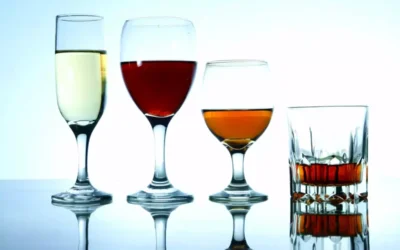Content
The experience may cause someone to lash out, breakdown, or cope in unhealthy ways. As a result, individuals with unchecked triggers can cope in harmful ways, foster unhealthy relationships, and endure much suffering. The FHE Health team is committed to providing accurate information that adheres to the highest standards of writing. This is part of our ongoing commitment to ensure FHE Health is trusted as a leader in mental health and addiction care.
Attending therapy is also a good way to help with processing internal triggers. By attending therapy sessions once a week, you will be able to sit and talk with someone who can listen and provide valuable insight. To identify what things could be triggers, a good place to start is making a list of people, places, and things that were prevalent in active addiction. People can have a sponsor, sober support, or therapist help them create a list. Once a list is made, the next thing to do is to decide what boundaries need to be set. One of the biggest obstacles people face when they are suffering from a substance use disorder are triggers that cause relapses.
Situations
Stay committed by strengthening them and continuously seek new coping skills that are out of your comfort zone. Once established, you’ll live a happier and healthier lifestyle with a sense of control in those difficult situations that may arise. Combined with other treatments, exercise shows promise to help continue with sobriety. Many patients with various substance use disorders have found that exercise helps to distract them from cravings. They help with forming positive social connections and help treat depression and anxiety in combination with other therapies. Stressful situations or even holiday celebrations may trigger a recovering individual.
- Those in recovery who feel they can now turn their backs on a continued effort to stay clean and sober are setting themselves up for potential and damaging relapse.
- After treatment, relapse prevention programs are typically offered as ongoing support to help individuals maintain their recovery.
- Poor self-care during the emotional phase of relapse can quickly lead to mental relapse.
- These thoughts become more intrusive and include believing that they can control the drinking or using.
- The key to suppressing these feelings is being aware of the internal triggers and the ability to seek support whenever needed.
The solution to managing difficult situations is learning how to confront them without drugs and alcohol. If you’re not sure how to confront these situations, contact us today. Mindfulness and meditation are two of the most effective coping strategies for managing addiction triggers. Mindfulness is a practice that encourages focus on the present moment and can help to reduce stress, improve concentration and increase emotional regulation. Meditation is a practice of focusing on quieting the mind to cultivate clarity, serenity, and insight.
What is a Trigger?
Mental relapse, or relapse justification, is the continuous fight between wanting to use and knowing you should not use. Individuals often underestimate the dangers of situations and fall into the trap of single-time use. They give themselves permission to use substances in a controlled way, but the frequency of use generally increases until they fully relapse. During therapy for people experiencing emotional relapse, patients are encouraged to identify their denial and focus on self-care. Cues such as spoons can trigger memories of drug use in former heroin users without them being aware. The research maintained that subconscious cues are dangerous because they reinforce the patient’s desire to restart using drugs without them being aware of it.

While meditating focuses on the things that are happening right now in the present moment. Guided imagery is also a great way to imagine yourself in a certain setting that helps you feel calm and relaxed. This just means the service feature itself is the external trigger.
Coping With Emotional Triggers
Although maintaining friendships while now sober may take work, it is very well possible. Regular consumption of drugs or alcohol will deprive the body of essential nutrients and can cause dehydration. It’s because, to develop a hook https://ecosoberhouse.com/article/essential-tremor-alcohol/ in your product and/or service and get your customer to keep coming back, you must understand why your customers get addicted to things. Internal triggers are those emotions behind the addictions tied to your product or service.

Some people cope with stressful events more easily than others; consider the impact such events might have on people with mental illnesses. Feeling triggered isn’t just about something rubbing you the wrong way. For someone with a history of trauma, being around anything that reminds them of a traumatic experience can make them feel like they’re experiencing the trauma all over again. While practicing halt, focus on understanding what causes your irritation and the proper way to express it. However, you do expire your anger, acknowledge and reflect upon it so you may relieve it in a non-destructive way. Hooked also means captivating which is relevant here, but let us focus on the definition ‘addicted’ for this article.
How to Identify a Trigger
During recovery, each person will encounter triggers that could result in relapse. Knowing and understanding how triggers work and being aware of your personal triggers are critical aspects of safeguarding your recovery. Internal and external triggers refer to emotional, environmental, or social situations that prompt memories which cause a desire to use drugs or drink alcohol again. On average more internal and external triggers than 85% of individuals are susceptible to relapse in the following year after drug and alcohol treatment. Relapse triggers are far more extreme for recovering addicts in the early recovery months of addiction treatment. A trigger is social, psychological, and emotional situations and events that compel an addicted person to seek their substance of choice, eventually leading them to relapse.
- We provide individuals all over the country with the opportunity to achieve the gift of lasting sobriety.
- It’s possible for any external trigger to happen without you being aware of the event that caused it.
- Psychological addiction triggers can be avoided by taking proactive steps to address the underlying issues causing them.
- If you haven’t figured it out let me tell you why we should understand the underlying emotions in addictions.
